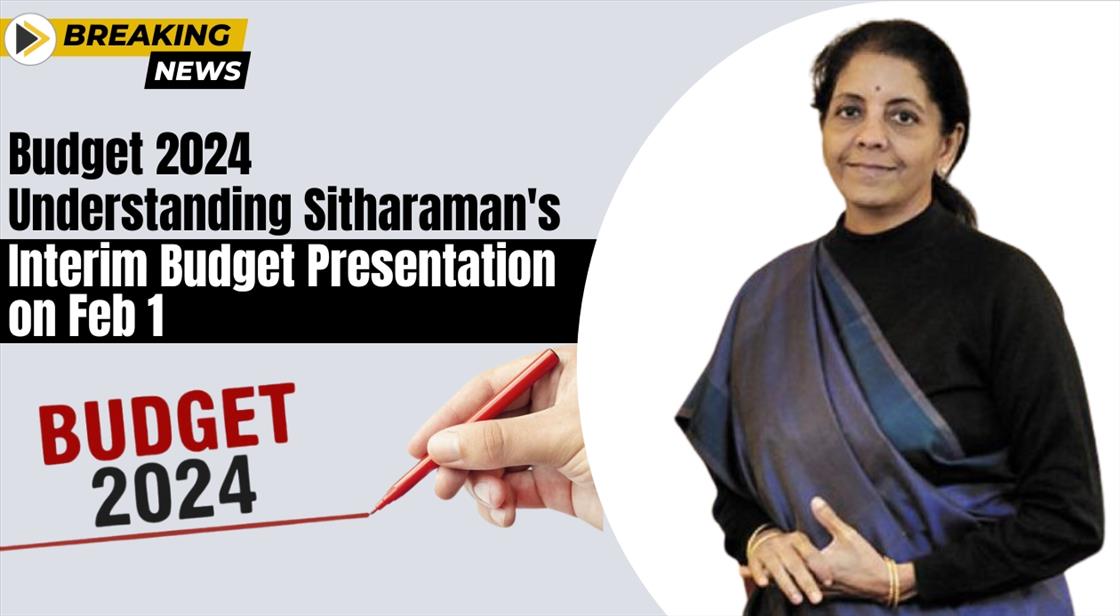Budget 2024: Understanding Sitharaman's Interim Budget Presentation on Feb 1

News Synopsis
As the nation awaits the financial roadmap for the upcoming fiscal year, understanding the nuances of the interim budget becomes crucial.
Finance Minister Nirmala Sitharaman is gearing up to present this interim budget on February 1, 2024, a pivotal move that holds significance as the nation approaches general elections. But what does this mean for the country's financial landscape?
Why a Budget is Essential:
The Constitution mandates that all government revenue and loans be deposited in the Consolidated Fund of India. Spending from this fund requires parliamentary approval. The budget, essentially a projected income and expenditure statement, authorizes the allocation of funds for the upcoming financial year.
Interim Budget and its Significance
In election years, outgoing governments refrain from imposing policy changes or budget constraints on their successors. The Interim Budget, a parliamentary norm during such times, facilitates the government in covering expenses until the new administration takes charge.
The Evolution of Budget Dates:
Since 2017, Finance Minister Arun Jaitley shifted the budget presentation date to February 1st, eliminating the need for a separate vote on account for that purpose. However, the vote on account still plays a role within the interim budget, granting temporary permission for administrative expenses until the new government is formed. This permission typically lasts two months, with the possibility of extension.
The Vote on Account Distinction:
If the financial year concludes without the budget's passage, the government cannot access funds until the appropriation bill is enacted. The Constitution empowers the Lok Sabha to grant funds in advance for a portion of the financial year, known as the 'Vote on Account.' In recent years, the practice of presenting the union budget on February 1 has diminished the need for a separate vote on account.
Key Differences Between Interim Budget and Vote on Account:
-
Scope: Interim Budget includes both expenditures and receipts; Vote on Account lists only government expenditures.
-
Parliamentary Process: Interim Budget undergoes discussion and passage in the Lok Sabha; Vote on Account, specific to expenditures, is passed without discussion.
-
Tax Changes: Interim Budget can propose tax regime changes; Vote on Account cannot alter taxes.
-
Duration: Interim Budget, akin to a full budget, projects for a few months; Vote on Account is passed within the interim budget.
-
Validity: Interim Budget is valid for a year; Vote on Account usually holds for two months.
Finance Minister Sitharaman has confirmed that the February 1, 2024, budget will solely be a vote-on-account due to the impending elections, with the full-fledged budget anticipated in July.
What to Expect in 2024:
Finance Minister Sitharaman has confirmed that the February 1st, 2024 budget will solely be a vote on account, with the full-fledged budget presentation expected in July following the elections. This ensures continuity of government operations while allowing the incoming government to formulate its own fiscal agenda.
Understanding the nuances of interim budgets and votes on account empowers us to better engage with the Indian political landscape and make informed decisions. Stay tuned for further updates on the 2024 budget and its implications!
Key Takeaways:
-
Finance Minister Nirmala Sitharaman will present an interim budget on February 1, 2024, instead of a full budget, due to upcoming elections.
-
The interim budget will act as a vote on account, temporarily authorizing the government to spend until the new government takes charge.
-
Understanding the differences between an interim budget and a vote on account is crucial to navigate this temporary financial measure.
You May Like









